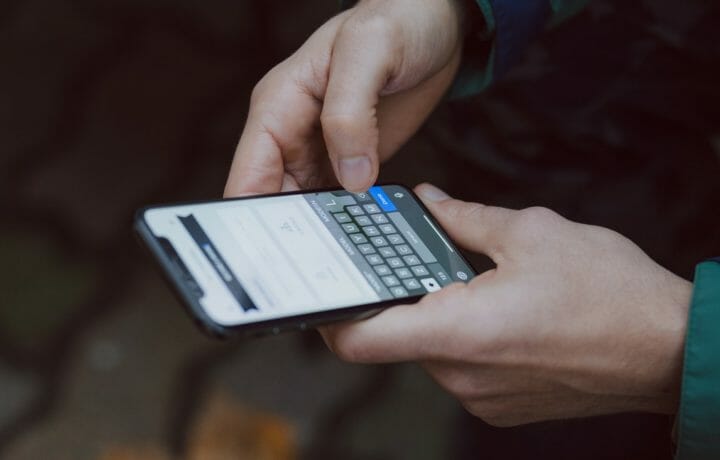Smartphones have become a part of our everyday life. Just about everyone out there has a smartphone and is using it to do a lot of different things. For some of us, the GPS function is a life saver. Some love having mobile games in their pocket. Amateur photographers can snap pics wherever they go, and the music lover can download, listen to and share their favorite tunes. The other group of smartphone users is what I’m going to call the “super user.” The super user is someone who is doing all of the above as well as using their phone to work from wherever they are and whenever they need/want to. Advances in technology have given us the ability to have our email in our pocket, PowerPoint presentations on demand and video conferencing all from a 5” or bigger screen, wherever we are. In theory, this is wonderful, as it allows us to be more flexible with our work schedules. However, I believe the bad outweighs the good in this scenario. Smartphones have killed the 8 hour workday/40 hour work week. Smartphones have also significantly impacted our family time/free time after we clock out for the day. I’m not a smartphone hater. I use one daily, but it has become a nuisance to our work/life balance and here’s why.
We are ALWAYS Available
Most companies today have either a bring your own device (BYOD) policy, or they offer corporate owned devices to their employees. With a BYOD policy or corporate owned devices comes an expectation that you can be reached 24/7/365. I’ve been emailed and/or called on Christmas day, on a Sunday, 11:30 p.m. during the week, and on a Saturday morning. Now, a caveat, if you work in the IT industry and are on a team that has rotating on-call service, then it’s hard to avoid being available 24/7 during your on-call slot. That’s not what I’m talking about here. I’m talking about being at your son or daughter’s little league baseball game all while typing out an email, or dialed into a conference call. Before smartphones, this expectation didn’t exist. When it was 5 o’clock, the bell whistled and you clocked out for the day. Smartphones have killed this model, and it’s sad.
Constant E-mail Notifications Demand our Attention
Smartphones compete for our attention just about every 5 minutes it seems. With notifications dinging or beeping constantly, our current task, activity or conversation with someone is interrupted as we feel a pull to check the notification. When our work email is on our phone, we feel the need to check it constantly. This is true also with personal email, but even more true with corporate emails. Maybe it’s your boss asking you about a deadline, maybe you are getting a reminder to do your timesheet — whatever it is, it seems it can’t wait until Monday morning or even the next morning.
We feel the need to reply to an email if it’s 10:30 at night, or if we are at dinner with our family. When we respond to those emails outside of work hours it sets the precedent with our boss/colleague that we will always answer that email or phone call. It’s important to avoid setting this precedent, and focus more on shutting off when you are away from work. Unless your boss has explicitly requested that you be available 24/7 as a condition of your employment, it’s best to set the phone face down when you get home, or plan to check it hourly, if necessary. We have to try really hard to have a healthy work/life balance with today’s technology.
Our (fill in the blank) Becomes an Extension of Our Office
Last but certainly not least, the most irritating thing about working on a smartphone. When it doesn’t matter where you are or who you are with, you answer a phone call or reply to an email and everyone around you has to listen to you work in a non-work setting. Whether it be at a restaurant, church building, department store, or at home in bed… all of those places then become an extension of your office. Again, you are setting a precedent with those around you that you are too busy to give them attention after work hours so don’t expect it. If you have to work after hours or take a business call, practice good etiquette and remove yourself from the situation and take the call. If you have an office space in your home, go in and close the door. If you are at a restaurant, step away to the lobby. Don’t be that person talking business on the phone at the table.
Set Clear Boundaries, and Let Everyone Know About Them
Some of us simply cannot avoid the after hours call or email that we need to read and send. For some of us, it’s just a part of our job. For others, if you can, set clear boundaries and make sure that everyone knows about them. If you have to set an out of office message to go out after 5 p.m. at night letting everyone know you will contact them first thing in the morning, then do that. People will get the drift and they will respect you for that. Become a diligent calendar user, and share your calendar with others. If you are that busy guy/gal that has a jam packed schedule, utilize your calendar in Outlook and make sure you block out time afterhours so that everyone can see it. Don’t let people put meeting requests on your calendar during your afterhours time slots.
There are many things you can do to achieve work/life balance and not let your smartphone use turn every hour of the day into a work hour. Invest in yourself and make time to do things away from work, it will make you happier and more productive in the long run.




